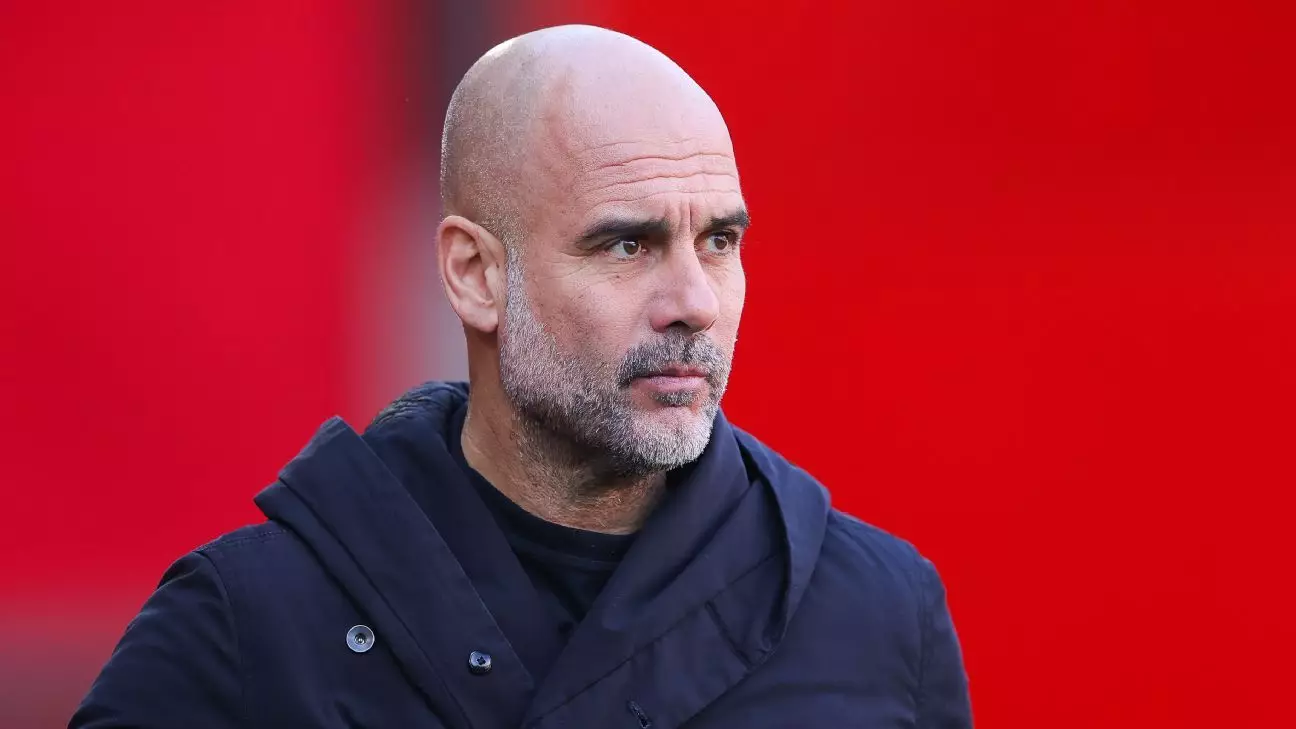In the high-stakes world of football, performance is measured not just by talent but also by psychological tenacity. Pep Guardiola has been vocal about what he believes is a disturbing trend within his Manchester City squad: dwindling motivation. The urgency of a self-assessment is looming over the players, especially after key striker Erling Haaland articulated that a lack of “hunger” is impairing the team’s performance this season. Such candid reflections from a star player suggest that victory is not merely a product of skill but one that requires an unquenchable thirst for success. The onus, therefore, lies not solely on the managerial staff but heavily on the players themselves to instigate a cultural renaissance.
Empowering Player-Led Initiatives
Guardiola’s suggestion for a players’ meeting to discuss internal issues seems not only practical but essential. The necessity for self-reflection and communication among players underscores a critical aspect often overlooked in high-performing sports teams: the importance of camaraderie and accountability. Guardiola has implicitly placed a level of trust in his players, indicating that they have the leadership qualities required to recalibrate their focus and standards. This trust is a double-edged sword—while it empowers players to take charge of their destiny, it also highlights the risk of complacency if they neglect this responsibility.
Strength in Adversity
Despite the dissatisfaction articulated by Haaland, recent results offer a glimmer of hope. City is riding a five-match winning streak, showcasing their undeniable talent and capabilities. But as Guardiola pointedly notes, fleeting success does not guarantee consistent performance or motivation. The mental fortitude of the team is tested, and navigating challenges is essential for long-term success. In many ways, the true measure of a champion lies not in smooth sailing but in how they anchor themselves amidst turbulent waters.
Injury Woes and Future Concerns
As City gears up to face Southampton, the availability of players like Haaland—returning from injury—is a double-edged sword. While his presence is invaluable given his remarkable goal-scoring record this season, a team’s ability to thrive transcends the contributions of any single player. The absence of key individuals like Rodri further complicates matters. This interplay between talent availability and mental readiness creates a unique pressure that demands both strategic agility and emotional resilience.
De Bruyne’s Transition and Its Implications
Kevin De Bruyne’s impending departure from the Etihad Stadium adds yet another layer of complexity to the ongoing narrative at Manchester City. The fact that such a pivotal player may soon be leaving raises questions about the team’s continuity and future ambitions. Guardiola’s apparent desire to see De Bruyne remain in the Premier League speaks volumes about the manager’s commitment to not only his players but to maintaining competitive integrity within the league. As De Bruyne navigates contract discussions, the emotional and psychological impact on the team’s dynamics cannot be understated.
In the long run, motivation can be the crucial differentiator between a good team and a great one. The responsibility to reflect, recalibrate, and reignite that competitive fire lies in the hands of the players themselves.

